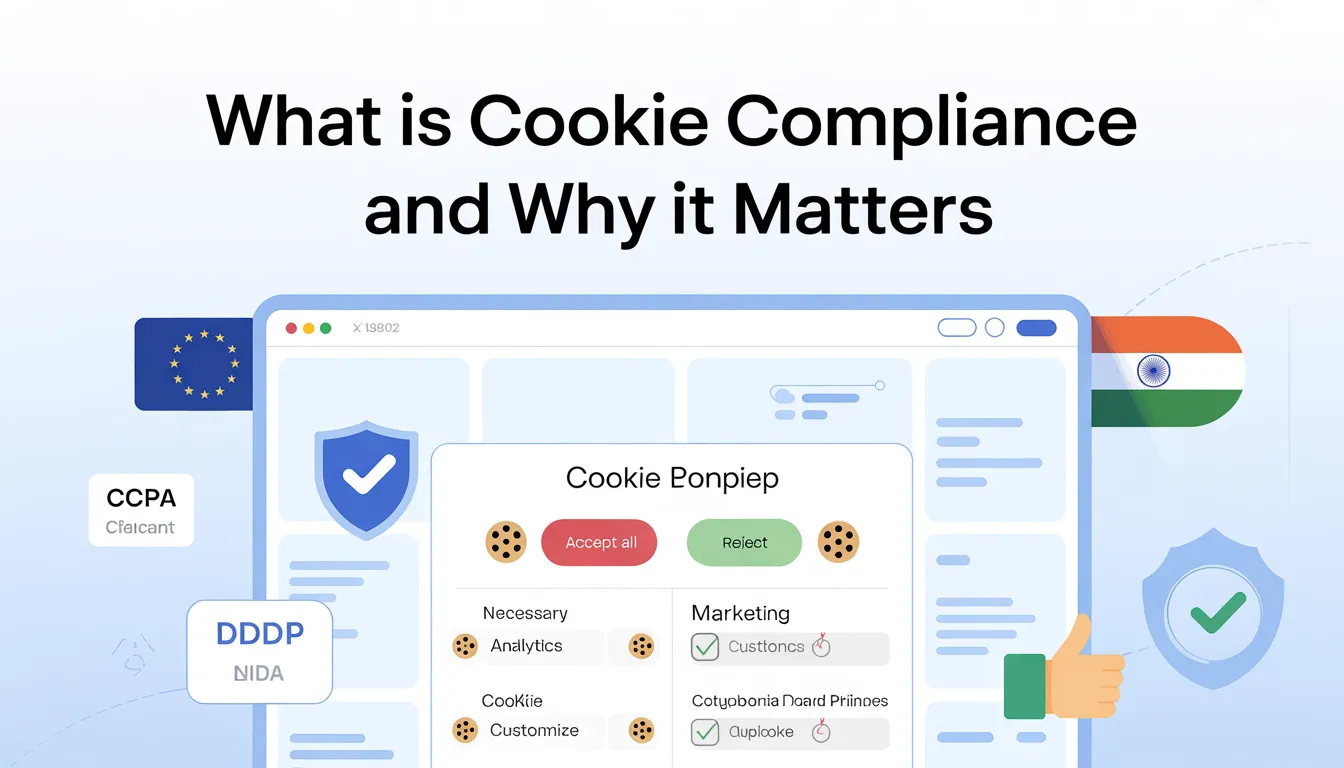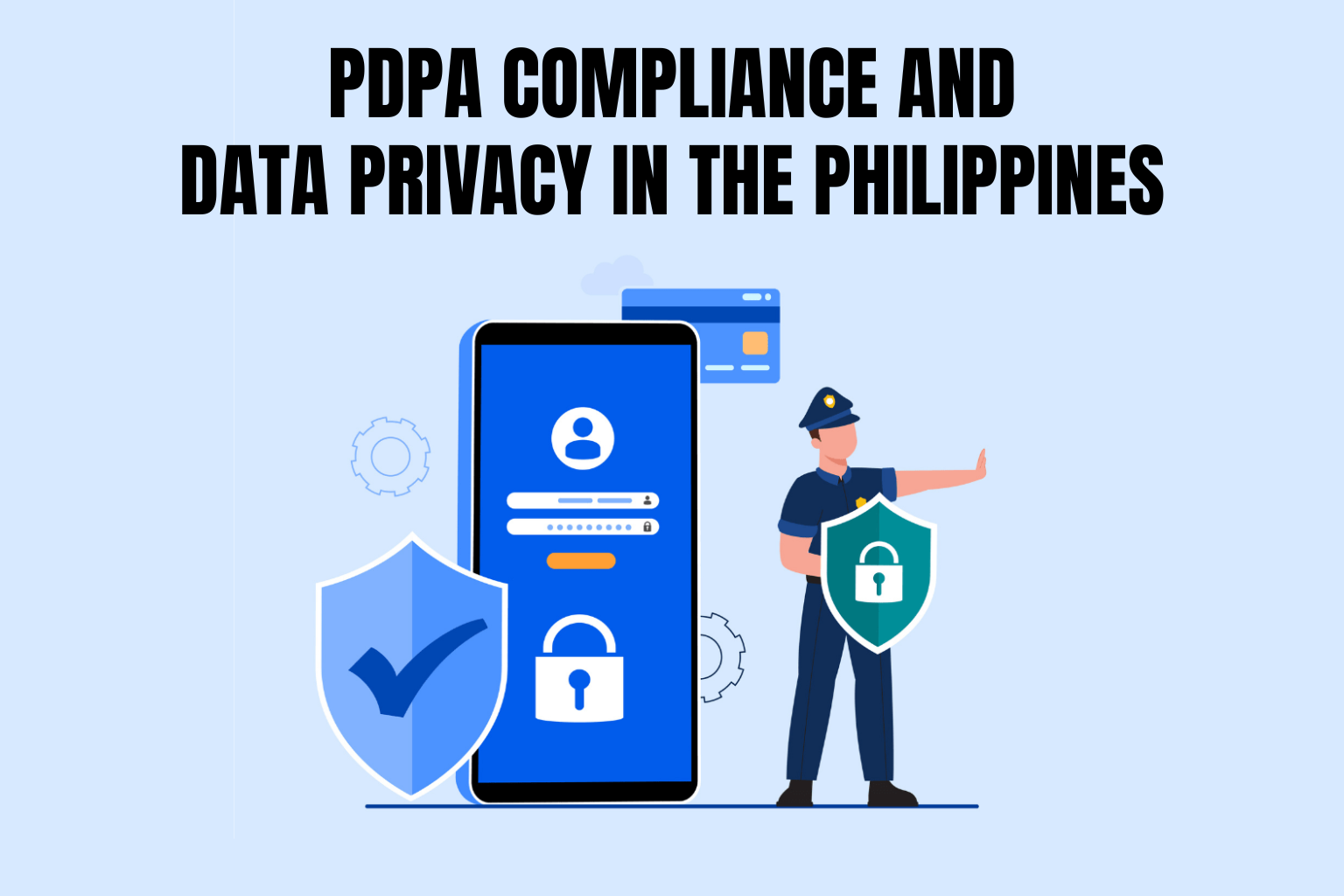
What Is Cookie Compliance and Why Does It Matter
Have you ever thought that the cookies on your site might bring your company under legal sanction? The failure to meet the requirements of such laws as GDPR and CCPA is not only dangerous but also expensive.
Fines on companies that violate cookie laws totaled millions of dollars last year alone. However, compliance is not merely the absence of fines, but a way of establishing trust and keeping up with the changing global privacy requirements.
This is where cookie compliance comes into play. With the clear management of cookies, the practice of seeking consent, and the privacy of users, you remain in harmony with international law and build customer confidence.
Redacto streamlines this procedure and allows businesses to remain compliant with ease and concentrate on their growth.
What Is Cookie Compliance?
Cookie compliance means being GDPR, CCPA, and other regulations compliant through clear cookie management on your site. It allows users to control their data collection and processing.
The purpose of these regulations is to safeguard the privacy rights of people by making websites disclose the use of cookies, collect informed consent, and provide opt-out mechanisms for unnecessary tracking.
Compliance can be met through the use of cookie banners, offering opt-in choices to non-essential cookies (such as marketing and analytics), and retaining easy-to-access cookie policies.
When implemented correctly, cookie governance reduces legal risks, simplifies audit-readiness, and increases consumer trust in businesses.
Key Requirements of Global Cookie Laws
Cookie laws like GDPR, CCPA, and others specify clear requirements for privacy and consent. Understanding these is crucial for legal compliance and building user trust. Here are the primary global cookie compliance requirements:
1. GDPR (European Union) Compliance: Ensure opt-in consent for non-necessary cookies. Consent must be informed, freely given, and revocable at any time.
2. California Consumer Privacy Act (CCPA): Display a "Do Not Sell My Data" link, and give users the right to opt out of data sharing without discriminatory consequences.
3. India’s DPDP Act: Collect explicit consent for sharing sensitive personal information, and align with purpose-specific data usage principles.
4. Data Retention & Breach Transparency: Maintain detailed cookie consent logs, periodically review permissions, and notify users in case of data-related breaches.
Types of Cookie Compliance

Cookie compliance varies depending on the use and purpose of different cookie types. Complying with regulations ensures lawful processing and maintains trust with users. Here's a detailed breakdown:
1. Necessary Cookies
These cookies are part and parcel of running a website. Examples are session cookies to authenticate users and to select language preferences. They are not used to process personal data beyond their core functionality, so regulations such as GDPR do not normally require them to have consent.
Businesses are, however, expected to clearly state their usage in their cookie policy and be transparent to the user. Misuse to track or secondary processing can still result in non-compliance.
2. Analytical/Performance Cookies
They are cookies that monitor user behavior, such as page views or session time, in order to enhance the performance of the site. These need to be activated with informed consent of the user under GDPR cookie compliance.
Websites are supposed to provide fine-grained consent, so that users can reject or selectively activate such cookies. Businesses that follow the compliance reduce the privacy risks but use analytics insights in a responsible manner.
3. Marketing/Tracking Cookies
These cookies collect personal data to serve targeted ads or cross-site tracking. Compliance legislation requires opt-in consent, and there must be clear explanations regarding how it is used, shared, and retained.
The best practice is to provide users with the possibility to customize or revoke consent at any time by using a preferences portal, guaranteeing the long-term GDPR cookie compliance and CCPA.
4. Preference Cookies
Preference cookies retain data such as the language preference or default page formats of the user. Users are not expected to interface directly with those, yet the laws like GDPR cookie compliance emphasize transparent disclosures.
The cookie settings can be changed or disabled by the user without sacrificing functionality. This will enhance trust and ensure compliance.
Best Practices for Cookie Compliance
Staying compliant with global cookie regulations is essential for avoiding fines and building long-term trust. Here are the best practices modern businesses should adopt:
- Conduct Comprehensive Cookie Audits: Regularly scan and monitor cookies to identify first-party and third-party activities. Tools like Redacto Data Discovery make audits seamless and accurate.
- Use Transparent Cookie Banners: Provide clear, concise banner descriptions of each cookie type. Allow options for "granular consent," ensuring user flexibility.
- Maintain Real-Time Consent Logs: Automatically track every consent action for audit trails. Redacto Consent Management offers a real-time solution for tracking user choices.
- Create Self-Serve Preference Centers: Allow users to update or revoke their consent via an intuitive management interface, fostering user control over privacy.
- Adapt for Evolving Laws: Regulations like DPDP and GDPR cookie compliance evolve regularly—ensure your cookie workflows, disclosures, and tools are flexible and scalable.
Conclusion
Cookie compliance isn’t just about meeting legal obligations; it’s about fostering trust with users through transparency and respect for their privacy preferences.
With Redacto tools like Consent Management and Data Discovery, navigating global cookie laws becomes simpler, helping businesses stay ahead in the privacy-first era while focusing on their growth.
FAQs
What is cookie compliance?
It adheres to global privacy laws by transparently managing cookies, obtaining informed consent, and respecting user privacy, aligning with GDPR compliance and CCPA requirements.
Which regulations cover cookie compliance?
Key regulations include GDPR (EU), CCPA (California), DPDP (India), and other regional privacy laws addressing data collection and user rights.
Do all cookies require consent?
No, essential cookies necessary for website functionality typically don’t. Others, like analytical, marketing, and tracking cookies, need user consent under regulations.
What happens if I don’t comply?
Non-compliance can lead to hefty fines, like GDPR's penalty of up to €20 million or 4% of global revenue, alongside reputational damage.
How does Redacto.io assist with cookie compliance?
Redacto simplifies cookie compliance with its Consent Management tool, offering audit trails and real-time consent tracking aligned with laws like GDPR compliance and DPDP.
What are cookie banners?
Cookie banners are interfaces on websites that allow users to see, accept, or customize cookie preferences, aiding compliance with global privacy laws.




%20Redacto%20logo_New.png)




.jpg)


